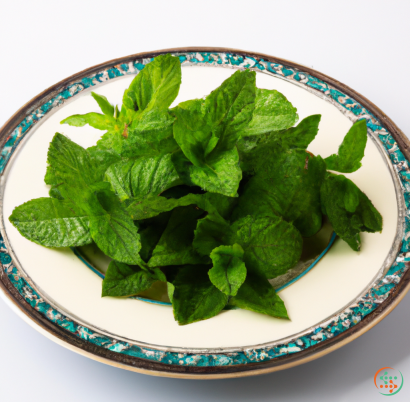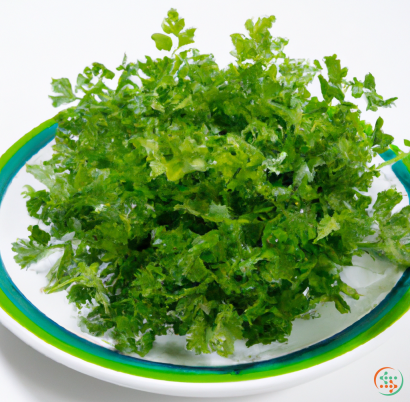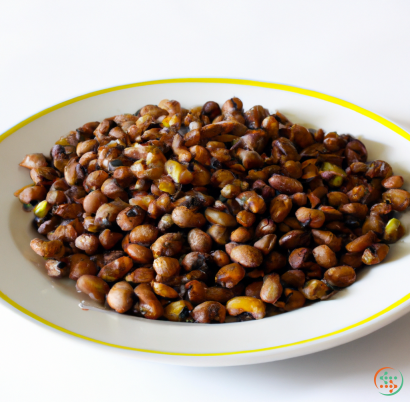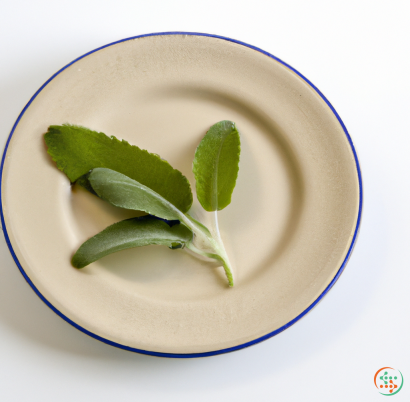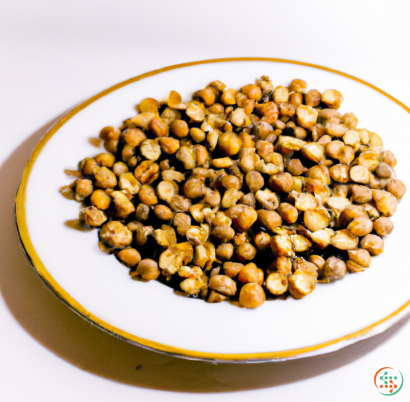Prunes
in details
A prune is a dried fruit derived from a variety of plums. It’s an excellent source of dietary fiber, vitamins, minerals, and other essential nutrients that can benefit overall health. Prunes have a long history in traditional diets, as they were part of early village-based economies in many parts of the world.
The origin of prunes can be traced back to Central Asia, where they were possibly first planted by the early Neolithic farmers. As their range expanded, they spread to the Mediterranean and then to the New World. Prunes went through several name changes over time, but their original Latin name, prunus domestica, remains popular in many places.
Prunes are dried plums, usually covered in a thin coating of sugar syrup and sometimes a thin wax coating for preservation. They are generally about 2–3 cm (0.75–1.25 in) in diameter and oblong or oval-shaped, with a wrinkled skin, dark purple in color. Their texture is chewy and juicy with a sweet, tart flavor.
Prunes are made by drying plums. To start the process, growers harvest ripe plums from trees in orchards. The plums are then washed, inspected, and sanitized before being placed into hot agricultural dryers or sun-dried in fields. During the drying process, they lose moisture and become smaller and darker. The plums then go through a second inspection to ensure quality, before being packed and shipped.
Prunes are a nutrient-dense food, with a notable amount of dietary fiber, vitamin A, and potassium, as well as a wide range of B vitamins, magnesium, and various trace minerals. Eating prunes can help support digestive health, improve blood sugar control, promote bone health, and provide numerous other benefits.
They also contain a type of fiber called sorbitol. Sorbitol has a laxative effect and helps consolidate stool, making it easier to pass.
Prunes can be enjoyed in many ways. They can be eaten raw; used in recipes that call for dried fruit, such as cakes, cookies, and breads; or cooked and sweetened for use in tarts or sauces. Prune juice is also popular as a beverage. It’s sweet but lower in sugar than other juices and makes a great smoothie base.
Prunes are a healthy, delicious addition to any diet. They are naturally sweet and offer many health benefits due to their high levels of dietary fiber and essential nutrients. Eating prunes is an easy way to enjoy a nutritious snack and incorporate this dried fruit into your meals.
From the Bittersweet Prune Tree to Your Dinner Plate: A Detailed Exploration
Codenamed Prunus domestica for many centuries, the prune is actually a type of plum, but one that has been dried and made more shelf-stable. Prunes, as they are commonly known, have a special place in international cuisine, including French and Hungarian delicacies, where the sweet and tangy flavors form the basis of so many menus. But how exactly do prunes move from a tiny fruit that is borne on a tree to a finished product that finally reaches your plate?
To begin with, one must first look at the root of the matter—the prune tree. Prunes, or dried plums, come from the European Prune Plum Tree, which is also known as the “Butterscotch prune.” This tree grows best in regions with dry summers, deep soils, and low humidity, although some varieties may be grown in regions with moderate humidity. The tree is a deciduous one, meaning it sheds its leaves after its growing season comes to an end and the tree takes the winter months to rest before growing into a full-fledged tree again in the springtime.
Interestingly, the prune tree has a long-standing history. On its ancient journey, the prune plum tree traveled from its home in Europe, thus acquiring its scientific name. Once it had traveled to North America, it was crossbred with native plum species, earning its other nickname, “Butterscotch prune.” Eventually, it found its way to California, where it was well-suited to the warmer climate and the global success story of the prune began.
It is no surprise then that the vast majority of prunes produced in the world are now grown in California. 75% of all prune production is taken care of by the sunny U.S. state, and prunes have become firmly entrenched in California's agricultural landscape. In fact, when you head out there to buy prunes or taste some of their famed dishes, they are usually referred to simply as “California prunes.”
So, let us move on from the tree itself and explore some of the science behind prune production. As anyone who has seen a California prune tree in its full glory knows well, the trees are filled with an abundance of fruit, with the blooms representing the potential for an incredible bounty of plum-sized fruits. During the peak summer season, when the blooms are in full bloom, the tree will be covered in small pink and yellow flowers, with anywhere from 200 to 300 of them on each tree!
But as soon as the prune blooms have faded, it is time to get to work. This is when harvest season officially begins. Prune harvesters carefully pick the fully developed fruits, ensuring that not damaged or underdeveloped fruits are collected. This stage requires a certain level of expertise and knowledge of the prune-growing process. The prunes that have been picked are then placed into burlap bags and transported to the sorting station or processing facility, where they will be inspected and sorted according to their size and quality.
At this stage, the prunes can be further processed in various ways, depending on the preferred outcome. First, most of the prunes will be transported to the drying facility for further processing. This method of preservation involves the removal of all moisture from the prune, ensuring a long shelf-life and a product that is suitable for consumption. Here, the prunes are placed in crates and loaded into the drying area, where hot air is circulated around them. This intense heat slowly reduces the moisture from the fruit, turning it from a juicy, soft plum into a chewy, dark-colored prune.
Once the prunes have been dried and cooled, the next stage is packaging. Prunes are then inspected for any remaining blemishes and bruises, and the final product is packed into airtight packages or boxes. The layers of packaging serve to protect the prunes from oxygen and other contaminants, forever trapping their precious flavor. Finally, the prunes are sent out across the world to countries around the globe, where they will surely be put to good use!
For those who would rather prepare their own prunes from scratch, DIY prune makers don’t need to worry about going through the drying process. All one needs for the task is some pitted prunes, a liquid such as apple juice or water, and a few other ingredients like sugar, cinnamon, or nutmeg. All that’s required is to soften the prunes by mashing them up and then boiling them in a liquid of choice until the desired consistency is reached. This DIY approach can be a fun and creative way of bringing prunes to the dinner table.
Finally, while prunes are often present as part of the dessert course, they can be used in savory dishes as well. Some delicious uses include prune pudding, prune and cheese turnovers, and even using them to fill baked empanadas. In France, prune clafoutis is an especially famous dish, and some have even adopted prunes for use as a meat substitute, making vegan and vegetarian dishes plenty more flavorful.
In conclusion, the journey of a prune from tree to table is certainly an interesting one. From the grower’s hands, to the harvesting, sorting, and packaging process, to the final consumption, prunes have won a special place in the culinary world. Thanks to their unique flavor and texture, and the rich nutritional content that come along with them, prunes are sure to remain a pantry staple for years to come.
| Vitamin A | 0.017 mg | |
| Beta-Carotene | 0.173 mg | |
| Alpha-Carotene | 0.025 mg | |
| Vitamin E | 0.19 mg | |
| Vitamin K | 0.0261 mg | |
| Vitamin C | 0.0029 grams | |
| Vitamin B1 | 0.02 mg | |
| Vitamin B2 | 0.1 mg | |
| Vitamin B3 | 0.72 mg | |
| Vitamin B4 | 0.0044 grams | |
| Vitamin B5 | 0.11 mg | |
| Vitamin B6 | 0.22 mg |
| Calcium | 0.019 grams |
Daily Value 1.3 g
|
| Iron | 0.41 mg |
Daily Value 0.018 g
|
| Magnesium | 0.018 grams |
Daily Value 0.4 g
|
| Phosphorus | 0.03 grams |
Daily Value 1.25 g
|
| Potassium | 0.321 grams |
Daily Value 4.7 g
|
| Sodium | 0.001 grams |
Daily Value 2.3 g
|
| Zinc | 0.19 mg |
Daily Value 0.011 g
|
| Copper | 0.12 mg |
Daily Value 0.9 mg
|
| Manganese | 0.13 mg |
Daily Value 0.0023 g
|
| Selenium | 0.1 ug |
Daily Value 0.055 mg
|
| Total Sugars | 0.131141 grams |
per 100g
|
| Palmitic acid (16:0) | 0.01 grams |
|
| Total Saturated fatty acids: | 0.01 g | |
| Oleic acid (18:1) | 0.08 grams |
|
| Total Monounsaturated fatty acids: | 0.08 g | |
| Linoleic acid (18:2) | 0.03 grams |
|
| Total Polyunsaturated fatty acids: | 0.03 g | |


